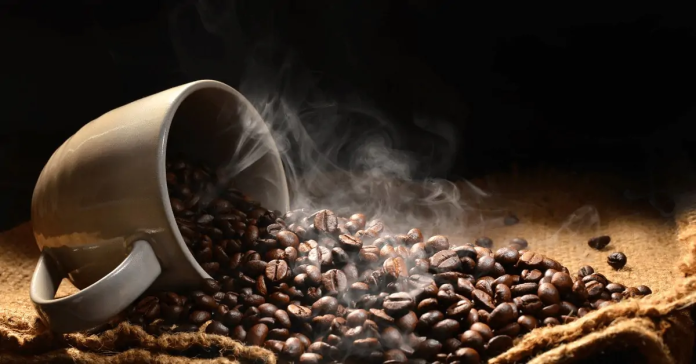How Long Do Coffee Beans Last
Coffee beans have a limited shelf life, and their freshness can significantly impact the quality of the coffee brewed from them. The longevity of coffee beans depends on various factors, including how they are stored and the type of beans. Generally: Read about How Much Coffee for 12 Cups
- Whole Coffee Beans: Whole coffee beans can retain their freshness for a longer period compared to pre-ground coffee. When stored in a cool, dark, and airtight container, they can last anywhere from 6 months to a year.
- Pre-Ground Coffee: Ground coffee has a larger surface area exposed to air, which accelerates the oxidation process and can lead to staleness more quickly. Pre-ground coffee typically starts losing its freshness within a week to two weeks after grinding.
To extend the shelf life of coffee beans:
Also read the Article: How to Grind Coffee Beans
- Storage: Keep the beans away from light, heat, moisture, and air. Store them in an airtight container in a cool and dark place, like a pantry.
- Freezing: If you want to store coffee beans for an extended period, you can freeze them. However, make sure they are stored in an airtight container to prevent moisture from damaging the beans. Also, avoid frequent thawing and refreezing, as it can cause condensation.
- Buy in Small Quantities: Whenever possible, buy coffee beans in smaller quantities to ensure you’re using them while they’re still fresh.
- Roast Date: Opt for coffee beans that display a “roast date” rather than just a “best by” or “expiration date.” This indicates when the beans were roasted, giving you a better idea of their freshness.
Keep in mind that while coffee beans might not necessarily go “bad” like perishable foods, they can lose their desirable flavors and aromas over time. It’s best to consume them within the recommended timeframes for the most enjoyable coffee experience.
Understanding Coffee Bean Freshness
The freshness of coffee beans significantly impacts the taste and quality of your brew. Coffee beans are at their best within days of being roasted, releasing aromatic oils and gases that contribute to their flavor profile.
Factors Influencing how long coffee beans last
Types of Coffee Beans
Different coffee bean varieties, such as Arabica and Robusta, have varying shelf lives. Generally, Arabica beans tend to last longer due to their lower oil content compared to Robusta beans.
Roast Level
The degree of roasting plays a role in shelf life. Lighter roasts retain their freshness longer than darker roasts, as the latter’s oils have been brought closer to the surface.
Packaging
Coffee beans should be stored in airtight packaging that prevents exposure to light and air. Look for bags with one-way valves that release gases produced by the beans while preventing air from entering.
Storage Conditions
Ideal storage conditions include a cool, dark, and dry environment. Avoid places prone to temperature fluctuations, such as near the stove or window.
Signs of Coffee Bean Deterioration
Stale coffee beans lead to a lackluster brew. Look out for signs like a flat aroma, muted flavor, and a sour taste, indicating that your beans have lost their freshness.
Prolonging Coffee Bean Freshness
Buying Whole Beans
Invest in whole coffee beans rather than pre-ground options. Grinding your beans just before brewing preserves their flavors and aromas.
Optimal Storage Containers
Transfer your coffee beans to airtight containers made of ceramic or glass. Avoid plastic containers, as they can’t prevent air from infiltrating.
Proper Storage Locations
Store your beans away from direct sunlight, humidity, and heat. The pantry or a cool cabinet are excellent choices.
Importance of Grinding Fresh
Grinding accelerates the staling process. To experience the full spectrum of flavors, grind your beans seconds before brewing.
How to Store Coffee Beans
Freezing Coffee Beans
Contrary to popular belief, freezing coffee beans isn’t recommended. The moisture can deteriorate the beans’ quality.
Refrigerating Coffee Beans
Refrigeration is also a no-go zone for coffee beans. The beans can absorb unwanted odors from the fridge.
Factors Influencing Coffee Bean Shelf Life
Types of Coffee Beans
Coffee beans come in various types and varieties, each with its own unique characteristics and shelf life. Arabica beans, known for their smoother taste and higher acidity, generally have a longer shelf life compared to Robusta beans. This is due to the difference in oil content between the two types. The higher oil content in Robusta beans makes them more susceptible to oxidation and degradation over time.
Roast Level
The roast level of coffee beans also plays a significant role in determining their shelf life. Lighter roasts, such as City or Light City roasts, retain their freshness for a longer period. This is because they undergo less heat during the roasting process, preserving the beans’ natural oils and flavors. On the other hand, darker roasts like French or Italian roasts have oils that come closer to the surface, making them more vulnerable to air and moisture, and thus decreasing their shelf life.
Packaging
Proper packaging is crucial for maintaining the freshness of coffee beans. When purchasing coffee, look for bags with one-way valves. These valves allow carbon dioxide, a natural byproduct of coffee beans, to escape without letting oxygen in. Oxygen is one of the main culprits behind the deterioration of coffee beans.
Airtight bags with these valves protect the beans from air exposure, preserving their flavors and aromas.Storing your coffee beans in the right conditions is vital for prolonging their shelf life. Keep them away from direct sunlight, heat sources, and moisture. Avoid storing them near the stove, oven, or in the refrigerator. Fluctuations in temperature and humidity can lead to condensation inside the packaging, which can compromise the quality of the beans.
Signs of Coffee Bean Deterioration
Recognizing the signs of coffee bean deterioration is essential for ensuring that you always enjoy a delicious cup of coffee. As coffee beans lose their freshness, their vibrant aromas and flavors diminish. Stale coffee often exhibits a flat, dull aroma and a lack of complexity in taste. If your brewed coffee tastes sour or lacks the rich notes you’re accustomed to, it might be time to consider using fresher beans.
Prolonging Coffee
When purchasing coffee, opt for whole beans instead of pre-ground options. Coffee grounds have a larger surface area exposed to air, accelerating the staling process. By grinding the beans just before brewing, you lock in the flavors and aromas, ensuring a more satisfying cup of coffee. Transferring your coffee beans to the right storage containers can make a significant difference in their freshness.
Ceramic or glass containers with airtight seals provide an effective barrier against air and light. However, plastic containers should be avoided as they can’t provide the same level of protection. Selecting the appropriate storage location for your coffee beans is essential. Choose a cool, dry, and dark place, such as a pantry or a cupboard. Make sure the area is not subjected to frequent temperature changes, as this can lead to condensation within the packaging.
Freezing Coffee Beans
While freezing how long do coffee beans last might seem like a good idea, it’s generally not recommended. Coffee beans are porous, and freezing can cause moisture from the freezer to be absorbed by the beans, compromising their flavor. Additionally, the freeze-thaw cycle can lead to condensation on the beans, which negatively impacts their taste. Refrigerating coffee beans is another practice to avoid. Coffee beans are hygroscopic, meaning they readily absorb moisture and odors from their surroundings.
Storing them in the refrigerator can expose them to various food odors, altering the flavor of your coffee. Grinding your coffee beans immediately before brewing is a practice that coffee enthusiasts swear by. When beans are ground, they expose more surface area to oxygen, causing them to deteriorate more rapidly. By grinding just before brewing, you ensure that the beans’ flavors are preserved until the very last moment.
Conclusion
In the world of coffee, freshness is paramount. By understanding the factors that influence the shelf life of coffee beans and implementing proper storage techniques, you can ensure that every brew is a flavorful and aromatic experience. So, the next time you reach for those beans, remember that a little care goes a long way in preserving the essence of your coffee.
FAQs
Q. Can I extend the shelf life of my coffee beans by refrigerating them?
A. Refrigeration isn’t recommended for coffee beans, as they can absorb moisture and odors, affecting their flavor.
Q. What’s the best way to store flavored coffee beans?
A. Flavored beans should be stored separately from regular beans to prevent flavor cross-contamination. Use airtight containers.
Q. Do vacuum-sealed bags guarantee freshness?
A. Vacuum-sealed bags can help, but they are no substitute for proper storage in a cool, dark place.
Q. Is it worth buying pre-ground coffee for convenience?
A. Pre-ground coffee is convenient but tends to lose flavor faster than whole beans. Consider grinding only what you need.
Q. Can I use stale coffee beans for cold brew?
A. Cold brew is forgiving when it comes to bean freshness. Stale beans can be used, but remember that quality beans yield better results.




